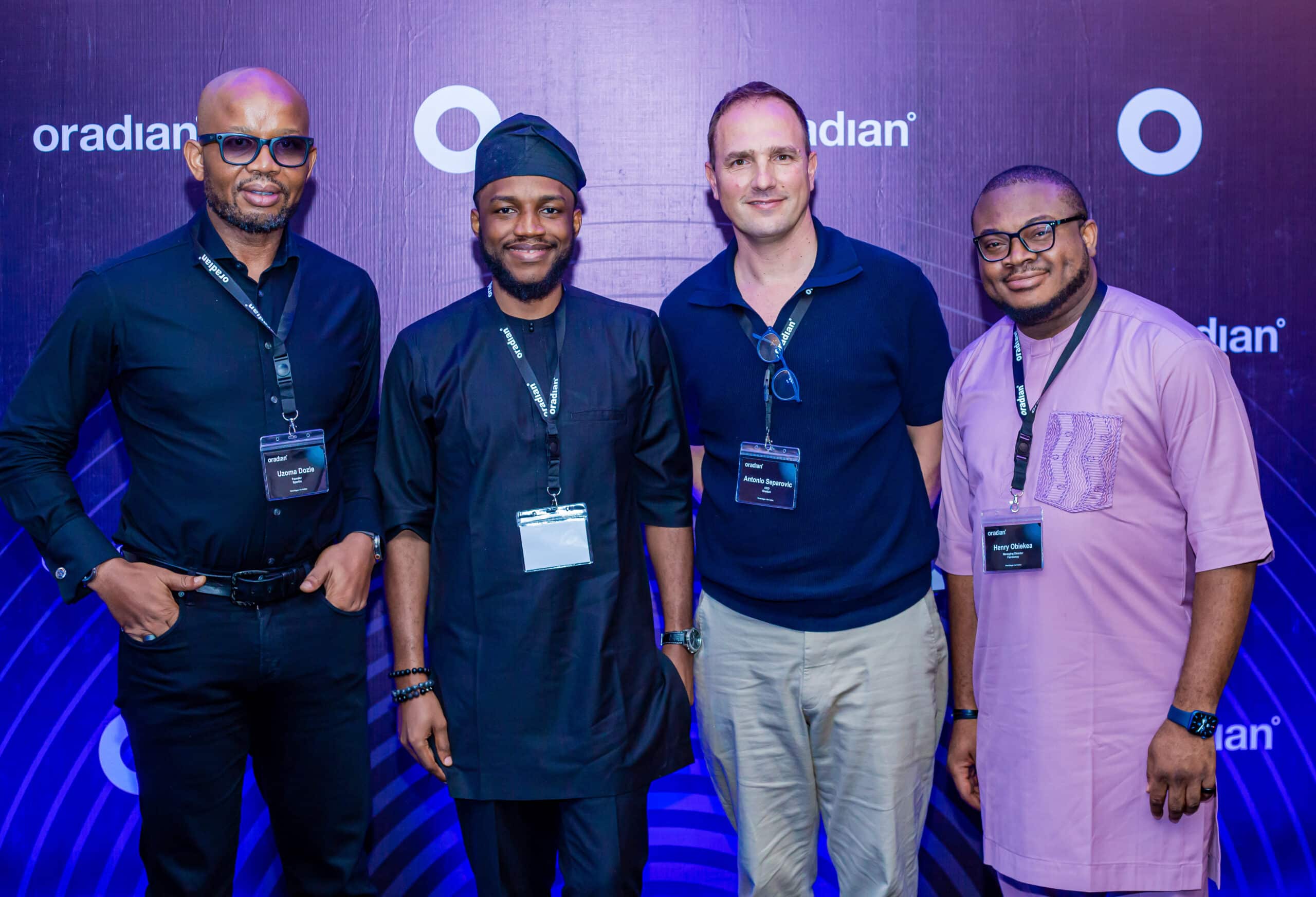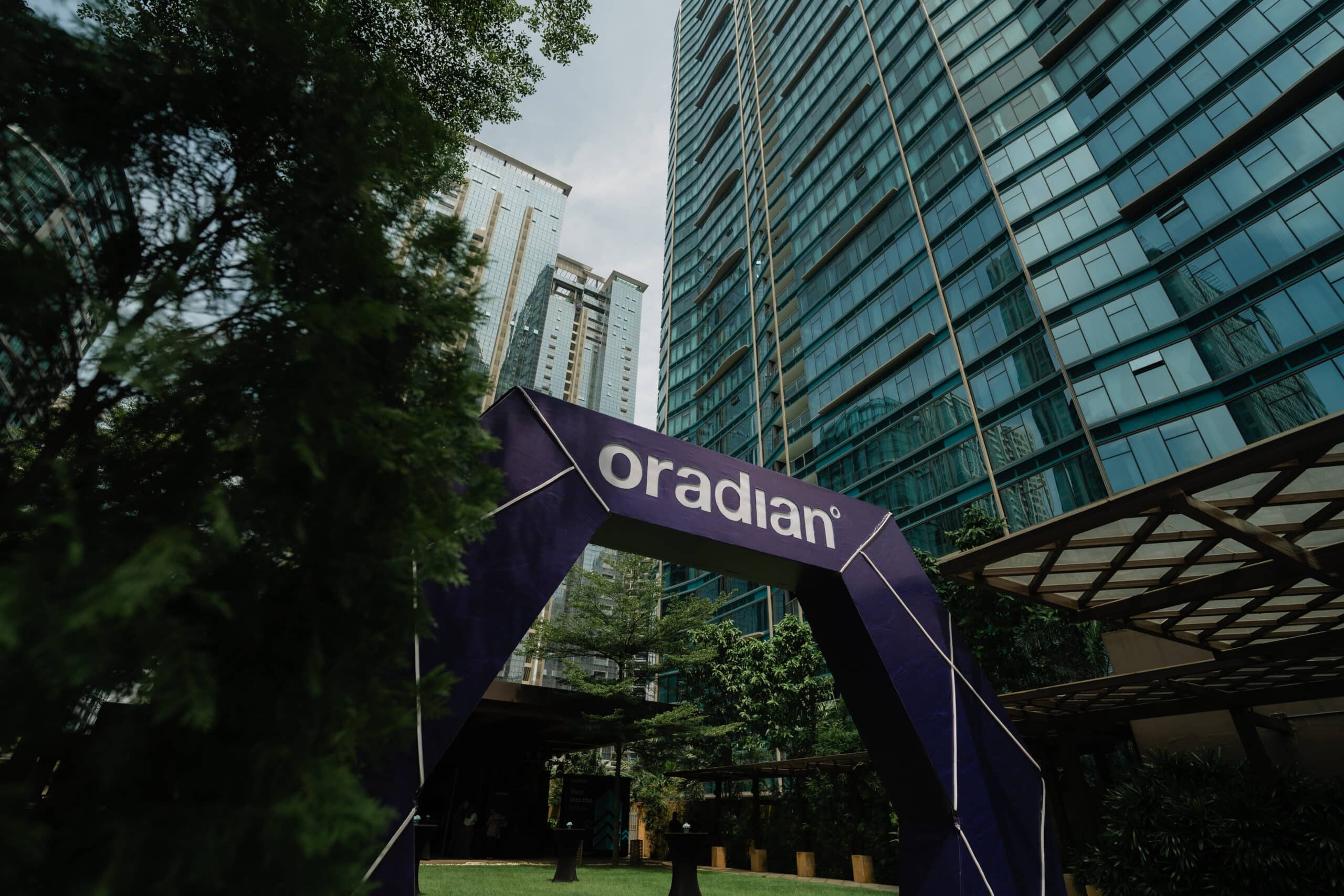The event aimed to explore the challenges and business opportunities related to diversifying revenue, mitigating risk, and expanding internationally for banks and fintechs across Nigeria and the sub-Saharan Africa region. The discussions were timely, given the rapid growth of fintech in the region and the pressing need for financial inclusion and innovation.
A Star-Studded Panel
The panel featured distinguished speakers from Nigeria’s financial sector:
🌟 Babatunde Akin-Moses, Co-founder and CEO, Sycamore
🌟 Henry Obiekea, Managing Director, FairMoney
🌟 Uzoma Dozie, Founder of Sparkle
These industry leaders provided a comprehensive look at the current state and future direction of fintech and banking in the region, drawing on their extensive experience and unique perspectives.
Driving Technology in Finance
With the proliferation of -tech companies (e.g., fintech, agritech, healthtech), the relationship between these new players and traditional institutions is evolving. A critical question explored during the talk was: What should drive tech in finance?
Akin-Moses warned that technology should add value to services rather than being adopted for its own sake. He referenced the blockchain hype a few years ago when inappropriate applications slowed down systems and created inefficiencies. The panel agreed that technology should be an enabler, enhancing the provision of services rather than being a distraction or a source of unnecessary complexity.
Obiekea added that the adoption of technology must be strategic and aligned with the institution’s core mission and goals. He stressed the importance of understanding customer needs and ensuring that technological solutions address real problems. This customer-centric approach is crucial for building trust and loyalty in a competitive market.
Financial inclusion
The Central Bank of Nigeria’s (CBN) National Financial Inclusion Strategy (NFIS) aims for a financial inclusion rate of 95% by 2024. However, roughly one-third of Nigeria’s adult population still does not use financial services or products. This gap presents both a challenge and an opportunity for the financial sector.
Investment in the Nigerian fintech scene has been booming, but there is a risk that vanity metrics such as ‘accounts opened’ can obscure true progress in financial inclusion. These metrics may give a false sense of achievement, making it difficult to gauge the actual impact of financial products and services on people’s lives.
Dozie suggested that one solution could be the distribution of smart devices to underserved populations. This would enable these individuals to access digital financial services and reduce the reliance on cash, which is expensive and difficult to transport securely. He emphasised that infrastructure development should focus on enabling access to digital tools and platforms, which can drive broader financial and social inclusion.
The Regulatory Environment
The panel also discussed the role of regulators in Nigeria, when it comes to fostering a conducive environment for financial innovation while ensuring that the needs of the underbanked are not overlooked. The consensus was that regulation is crucial for maintaining stability and trust in the financial system.
Akin-Moses pointed out that regulatory frameworks need to be adaptive and forward-looking to keep pace with technological advancements. He called for a collaborative approach between regulators and industry players to create an ecosystem that encourages innovation while protecting consumers.
Obiekea noted that clear and consistent regulations can help attract investment by providing certainty and reducing risks for businesses. He advocated for policies that support the growth of fintech and other tech sectors, which can drive economic development and financial inclusion.
Venture Capital in Nigeria
Despite Nigeria’s large population and the significant potential for growth, financial inclusion remains a challenge. Venture capitalists (VCs) have primarily focused on customer numbers as a key metric, but this approach can overlook the difficulties in reaching unconnected populations with limited disposable income.
Dozie highlighted a significant knowledge gap between regulators and the market, which hinders growth. He argued that financial inclusion should follow social inclusion, emphasising that fintechs and banks must address identification and connectivity issues to scale effectively. He posed critical questions about making smartphones accessible to everyone and improving identification systems, which are fundamental to integrating more people into the financial system.
Dozie also pointed out that VCs need to understand the unique challenges of the Nigerian market, such as infrastructure limitations and the high cost of customer acquisition in rural areas. He suggested that patient capital and a long-term perspective are essential for achieving sustainable growth and impact.
Expanding the Addressable Market
The discussion on expanding the addressable market focused on two main approaches: enhancing social inclusion domestically or pursuing international expansion. Dozie stressed the importance of collaboration among financial institutions to solve problems along the value chain. He argued that different institutions have various strengths and customer bases, and leveraging these differences is crucial for growth.
Established banks bring trust and stability, while new banks and fintechs offer advanced technology and innovative solutions. Understanding these dynamics is key to effectively serving diverse demographics. Dozie emphasised that partnerships and collaborations can create synergies that benefit all parties involved and drive overall market growth.
Collaboration Between Banks and Fintechs
The event underscored the importance of collaboration between traditional banks and fintech companies in addressing regulatory challenges, economic pressures, and the need for innovation. Dozie emphasised that trust is a key factor that will always be relevant, regardless of the type of product or business.
Akin-Moses added that collaboration can help institutions leverage each other’s strengths and resources, creating a more resilient and adaptable financial system. He highlighted the importance of open communication and shared goals in fostering successful partnerships
Obiekea pointed out that collaboration can also drive efficiency and reduce costs, benefiting both institutions and their customers. By working together, banks and fintechs can develop solutions that address the needs of underserved populations and contribute to broader financial inclusion.
Conclusion
The insights shared by the panellists provided valuable guidance for navigating the evolving financial landscape in Nigeria and beyond. The discussions highlighted the importance of technology as an enabler, the need for strategic and customer-centric approaches, and the critical role of regulation in fostering innovation and protecting consumers.
The event also underscored the potential for collaboration between banks and fintechs to drive growth and inclusion. By leveraging their respective strengths and working together, these institutions can create a more inclusive and resilient financial system that benefits everyone.
As Nigeria continues to develop its financial sector, the themes of diversifying revenue, mitigating risk, and expanding internationally will remain central to its success. The lessons from this event can serve as a roadmap for other regions facing similar challenges and opportunities.
Oradian as your local partner
Oradian supports financial institutions across the world on their digital transformation journeys. With offices in Lagos, Manila and Zagreb serving customers across the world, we have on-the-ground support and implementation teams that understand the markets they are operating in, in terms of regulatory requirements, and work in the same time-zones as the teams they are partnering with.
Get in Touch
For more information on how Oradian’s modern, extensible core banking system can help your institution evolve to meet today’s and tomorrow’s challenges, get in touch with our team at hello@oradian.com.





